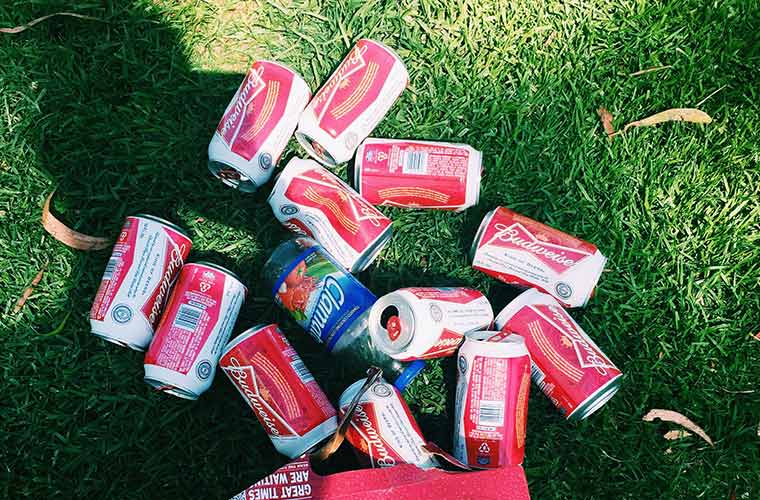You thought you were on top of things as a parent. You talked to your teen many times about drinking. Then you find out they’ve been drinking. What do you do? Here are 5 steps to take in response to underage drinking.
1. Don’t react in anger.
With as few words as possible, let them know that you know about it. Then be silent. Give it a day for you to calm down and for your teen to think about it.
2. Once calm, sit down with them and ask open-ended questions to determine why they were drinking.
This is a heart issue and you need to understand what’s going on inside. Maybe it was curiosity, peer pressure, a means of escape, an identity or image issue, or flat-out rebellion. If your child doesn’t want to talk, let them know that you’ll just sit there with them until they discuss it with you.
3. Help your teenager develop right thinking about alcohol.
Communicate to your teen that:
- Alcohol is a depressant and, if they are down or depressed about something, it will only make matters worse.
- It is illegal for anyone to buy or possess alcohol until 21 years of age. People who have been drinking while driving can have their driver’s license suspended, be subjected to heavy fines or have their car permanently taken away. If they hurt or kill someone else while being under the influence, they will live with it for the rest of their lives and may even be sent to prison.
- Alcohol use by teenagers is a strong predictor of pre-marital sexual activity which can lead to pregnancy, sexually transmitted diseases, and emotional baggage. Teens that use alcohol have higher rates of both academic problems and poor performance than non-drinkers. Also, more than 67% of young people who start drinking before the age of 15 will try an illicit drug. Children who drink are more than 22 times more likely to use marijuana and 50 times more likely to use cocaine than children who never drink.
4. Talk about consequences and your future expectations.
Now is the time to circle the wagons and bring your teen closer to you and closer to home. Start by letting them know the consequences of their actions. Those consequences might include things like losing the privilege of their phone or computer for anything other than school. Going out on weekends or revoking driving privileges may also be appropriate. And when they are at home, do your best to be there with them to just hang out together. Also, share with your child that just as bad company corrupts good character, good company builds good character. Help your child understand that who they associate with is very, very important and that you expect them to start making wiser choices in that area.
5. Stay on top of it.
This is not a one-time discussion; it’s an ongoing dialogue. It’s not simply handing out some consequences and then forgetting about it. When your child does leave the house, always make sure that you know who your child is with, where they are going, and what they are doing. You need to know their G.P.S. Have them check in with you on a regular basis. Your teen ultimately needs to understand that they have breached your trust and this is part of the process for them to earn your trust once again.
So, what have you done or what would you do if you caught your teenager drinking?



